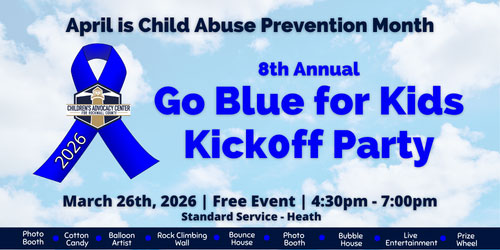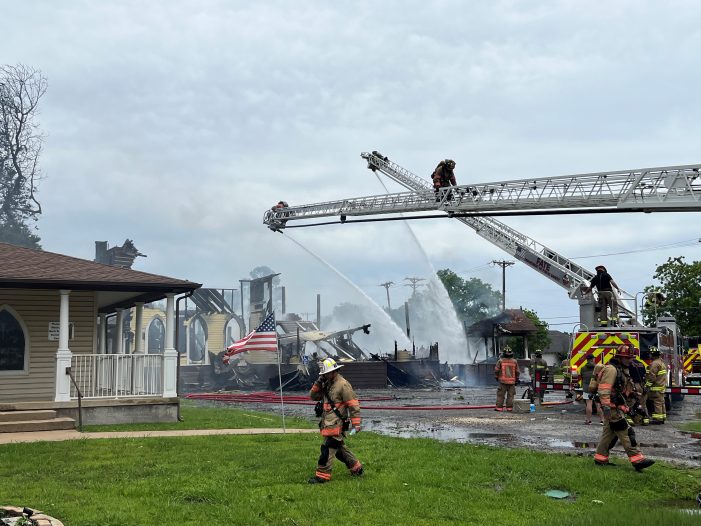ROCKWALL COUNTY, TX (June 16, 2024) Two weeks ago, a savage storm reduced my beloved church to ashes. I stood witness to its fiery demise, feeling helpless as the flames devoured it, ferocious yet agonizingly slow. I stood among friends and fellow congregants, as we watched men wipe away sweat and tears as they fought to contain the inferno.
Our church (Royse City Methodist Church) was no ordinary place. It held 120 years of local history, a sacred vessel for countless baptisms, weddings, funerals, and sermons. One woman, whose hand I held as she trembled and wept, shared how she was baptized, confirmed, married, saw her children baptized and confirmed, and buried her husband all within those stained glass windows and hallowed walls. She had never known another congregation. She likened it to losing a friend, and she was right—it felt exactly like that.
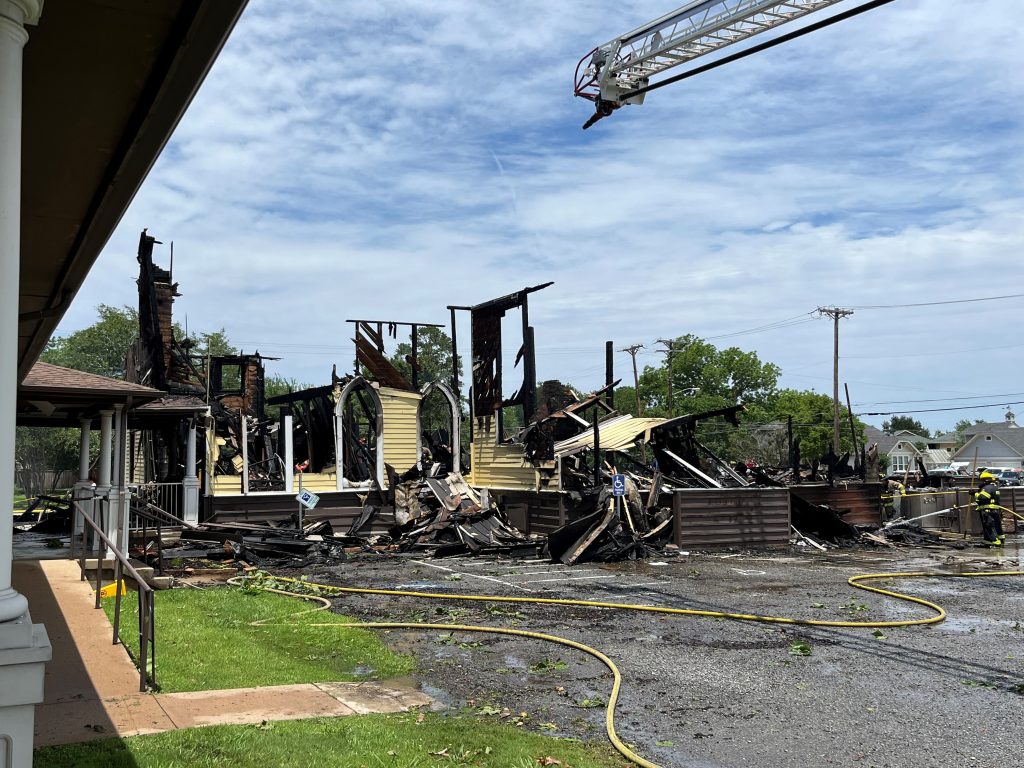 When the embers cooled and the smoke cleared, both physically and emotionally, we spoke of the strange sorrow of mourning a building. It carries a sense of guilt. The building was not a person; it had no feelings, yet it embodied the personhood and hearts of so many for so many years. In these days of grief, I’ve reminded others and myself of essential truths regarding mourning and grief, and I share them now in case you face a period of loss.
When the embers cooled and the smoke cleared, both physically and emotionally, we spoke of the strange sorrow of mourning a building. It carries a sense of guilt. The building was not a person; it had no feelings, yet it embodied the personhood and hearts of so many for so many years. In these days of grief, I’ve reminded others and myself of essential truths regarding mourning and grief, and I share them now in case you face a period of loss.
First, grief is valid in any loss, and no one has the right to diminish it. It may be a pet, a friend, a lover, a relationship, a job, a dream, or a place. It might arise from losing freedom, like when an elder surrenders their license or moves into a group home. It might come from leaving friendships that no longer fit your lifestyle or from saying goodbye to colleagues even as you step into your dream job. Loss is loss. Changes in schedule, habit, status, location, or roles can bring grief, and this is not only okay but healthy and normal.
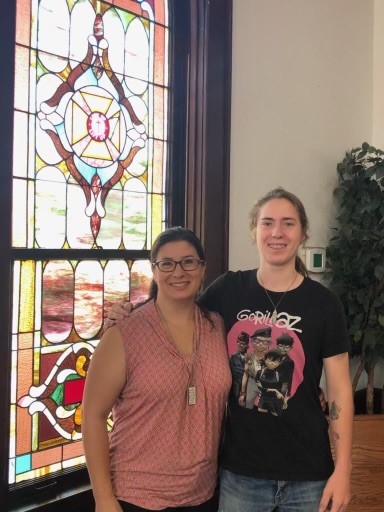 We humans have a beautiful way of attaching to things— we attach to our caregivers as babies, our first loves, our children, and grandchildren. We also form bonds with people that bring us joy outside of our families, jobs, and passions. However, detachment, whether by force or choice, brings us discomfort and pain. It’s in this detachment that we feel lost, and our bodies ache, uncertain how to navigate this new space.
We humans have a beautiful way of attaching to things— we attach to our caregivers as babies, our first loves, our children, and grandchildren. We also form bonds with people that bring us joy outside of our families, jobs, and passions. However, detachment, whether by force or choice, brings us discomfort and pain. It’s in this detachment that we feel lost, and our bodies ache, uncertain how to navigate this new space.
Grief can exist within a dichotomy, such as the sadness of retiring from a long career while feeling excitement for more time with the grandchildren. It can manifest as anger and irritation one moment and restlessness the next. This confusion can be frightening. When it arises, we must lean into the experience; Embrace the process of detachment. Though it can hurt like hell, it’s what ultimately heals us.
Our brains must forge new neural pathways due to detachment. If it fires, it wires—meaning emotional responses in the body form new brain pathways as the emotion is being processed in you. Suppressing emotions, or refusing to feel, forms faulty pathways, leading to deeper grief-rooted problems. Grief must be expressed to be released. If we deny it’s presence, our bodies pay the price.
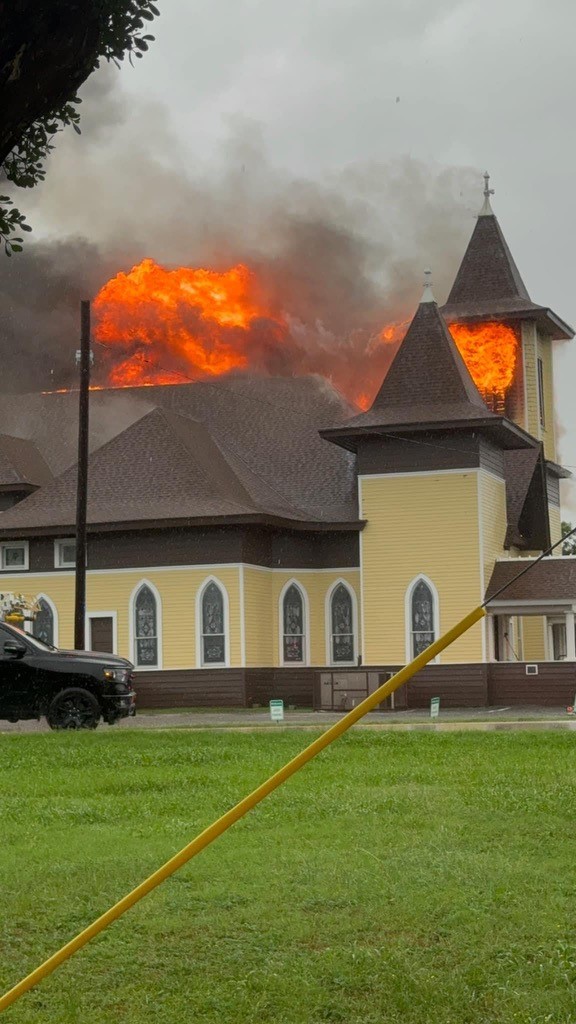 As I watched the church walls collapse and the beautiful stained glass vanish in billows of black smoke, I held hands and sang hymns with my friends. Our pastor led us in prayer. We held one another in long embraces not knowing what to say and needing not to say anything at all. What could have been etched in my mind as pure loss became a memory of sweet moments shared within my community, moments that would not have been possible otherwise. Allowing ourselves to cry and mourn, both together and alone, has helped us begin to move forward, appreciating all the blessings we had within the church and still have within the church members. Some may see it as folly to weep over an old building, but the lesson is clear—others’ opinions do not matter. Loss is real. Grief is normal. Tears are appropriate, and mourning comes to us all, in many forms and fashion and there is nothing but life and truth and beauty in the ashes. Embrace the season for what it is and do not compare your loss to any others. It is real and it is yours, so feel it any way you need to.
As I watched the church walls collapse and the beautiful stained glass vanish in billows of black smoke, I held hands and sang hymns with my friends. Our pastor led us in prayer. We held one another in long embraces not knowing what to say and needing not to say anything at all. What could have been etched in my mind as pure loss became a memory of sweet moments shared within my community, moments that would not have been possible otherwise. Allowing ourselves to cry and mourn, both together and alone, has helped us begin to move forward, appreciating all the blessings we had within the church and still have within the church members. Some may see it as folly to weep over an old building, but the lesson is clear—others’ opinions do not matter. Loss is real. Grief is normal. Tears are appropriate, and mourning comes to us all, in many forms and fashion and there is nothing but life and truth and beauty in the ashes. Embrace the season for what it is and do not compare your loss to any others. It is real and it is yours, so feel it any way you need to.
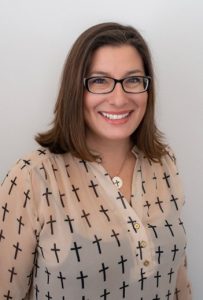
Guest column by Erin Kincaid, Founder and Clinical Director of Rockwall Heath Counseling. She holds a host of degrees in Psychology, Christian Counseling, Anthropology and is working toward her PhD in Clinical Counseling.
Erin lives in Rockwall with her husband and son. Look for more of her guest columns here.


